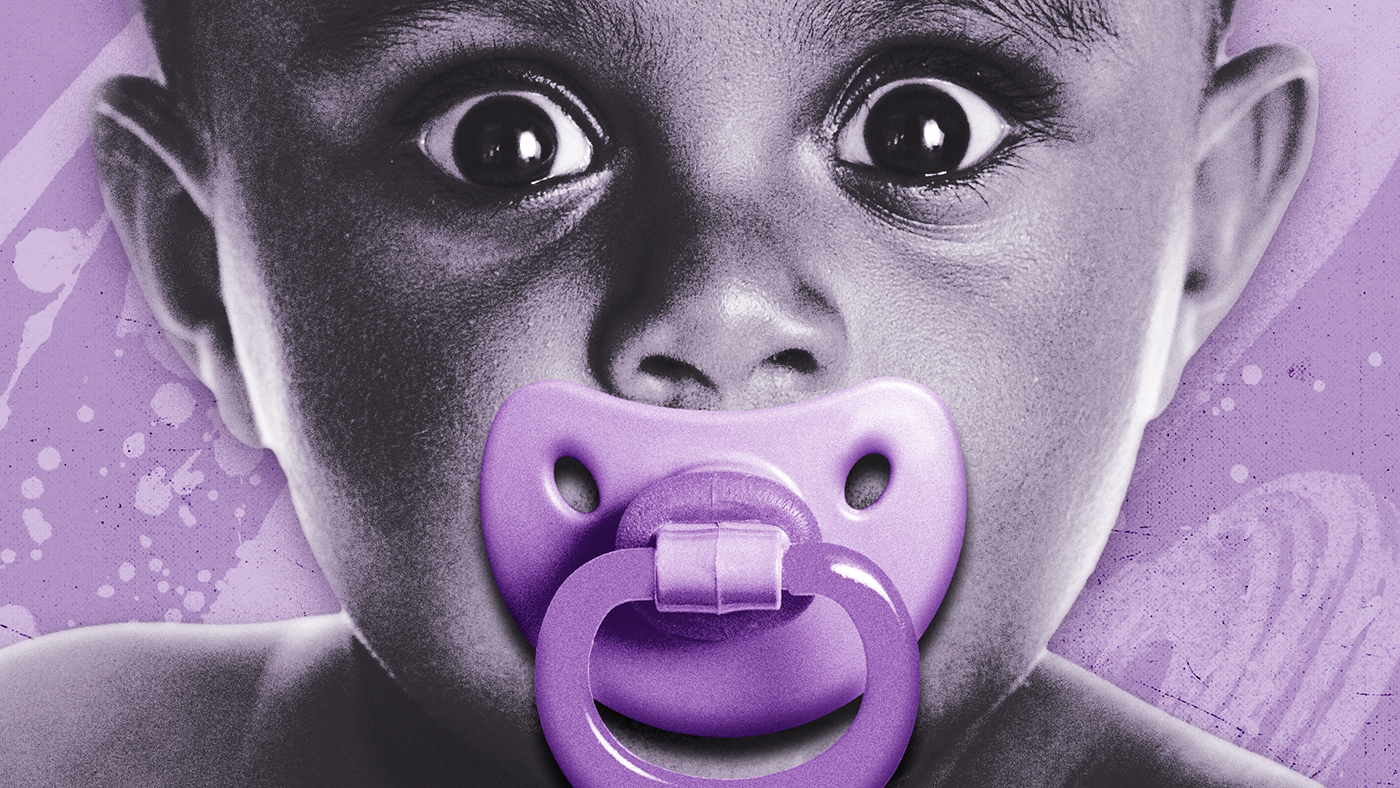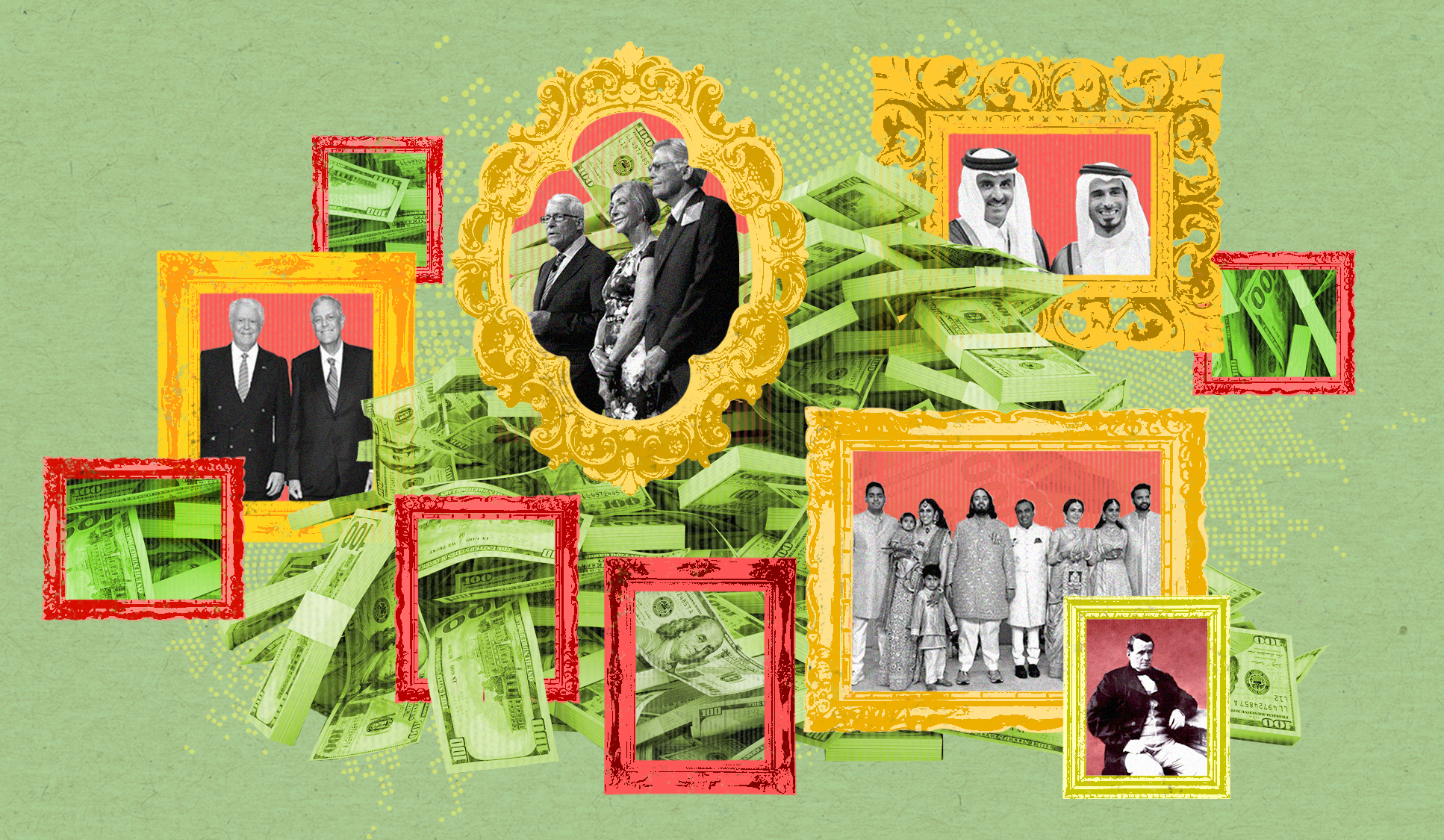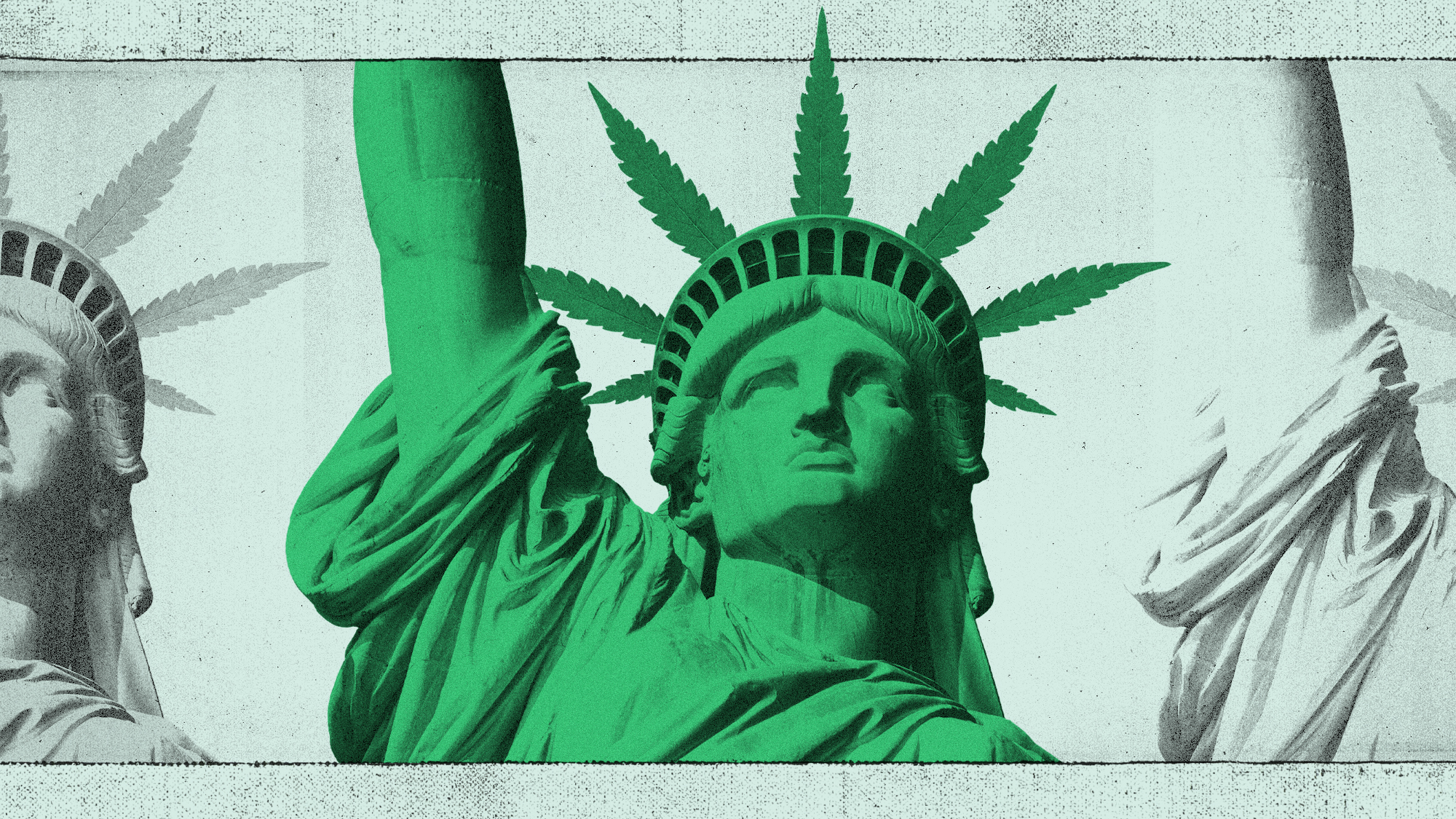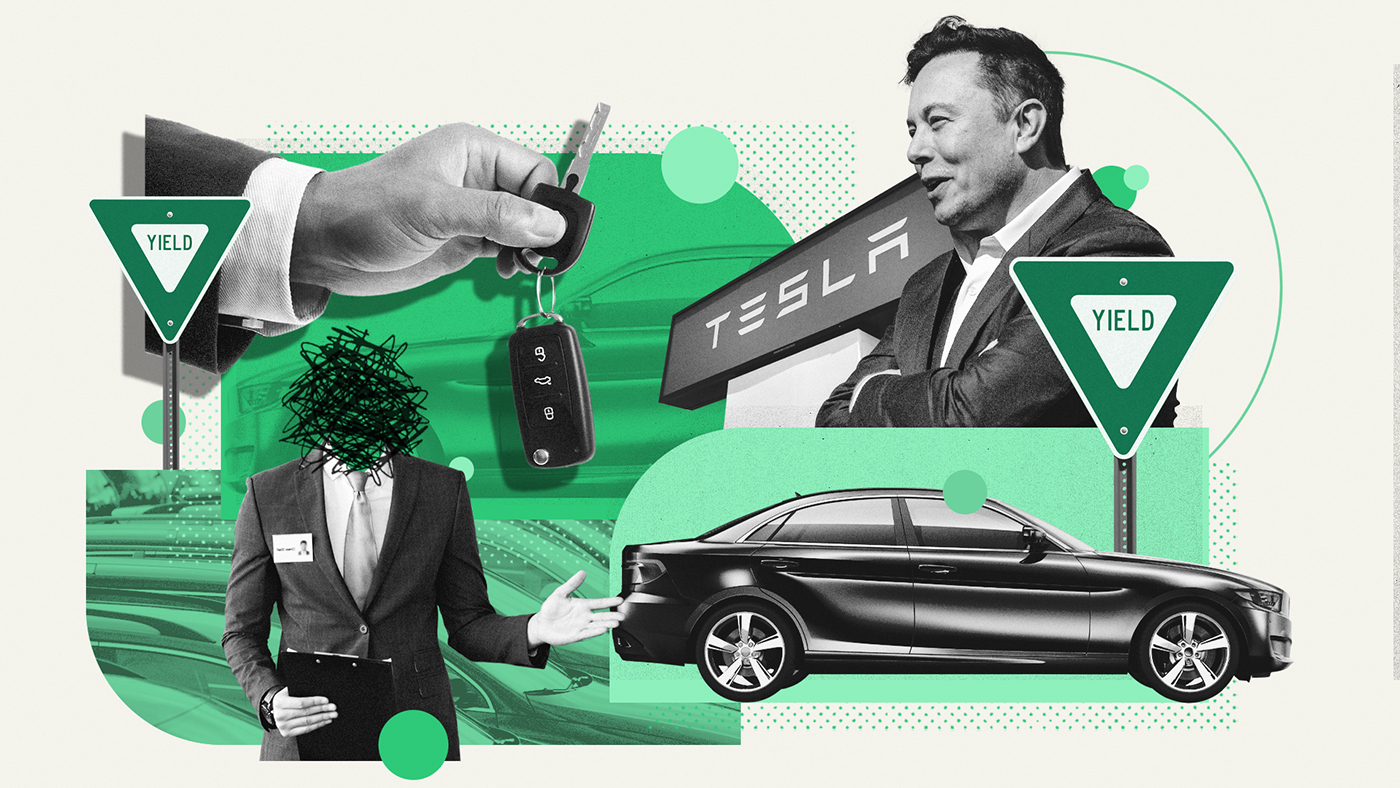What's behind America's child care crisis?
Child care in America has become increasingly unaffordable and inaccessible for families


A free daily email with the biggest news stories of the day – and the best features from TheWeek.com
You are now subscribed
Your newsletter sign-up was successful
President Biden recently signed an executive order aimed at fulfilling some of his early promises to make child care cheaper and more accessible to American families. Though he called the order "the most comprehensive set of actions any administration has taken to date to increase access to high-quality child care," it remains to be seen if it will effectively address America's longstanding child care issues.
Despite consisting of over 50 directives aimed at nearly every Cabinet-level agency," CNN reports that the order pales in comparison to Biden's goals from the beginning of his term, "when he proposed $225 billion to fully cover child care for low-income Americans and an additional $200 billion for universal preschool."
The child care industry is plagued by several problems, some of which were exacerbated by the COVID pandemic. The price of child care continues to rise, and employees are leaving the profession in droves. Parents struggle to find solutions, and many are forced to leave the workforce. Child care issues are not unique to the current crisis. Among lawmakers, there has been some resistance to creating a long-lasting solution for child care problems that plague the country's families and, in turn, the overall welfare of the nation's economy.
The Week
Escape your echo chamber. Get the facts behind the news, plus analysis from multiple perspectives.

Sign up for The Week's Free Newsletters
From our morning news briefing to a weekly Good News Newsletter, get the best of The Week delivered directly to your inbox.
From our morning news briefing to a weekly Good News Newsletter, get the best of The Week delivered directly to your inbox.
Why does affordable child care feel so out of reach for Americans?
America's child care crisis "can be broken down into three key, interrelated challenges," Gianna Melillo writes for The Hill, "affordability, accessibility, and quality of care." The child care industry is "labor-intensive and requires a high level of staffing, raising the financial burden on centers and increasing the costs of care," says Melillo. The high costs of running the business can preclude child care centers from paying employees competitive wages," adds Melillo, "resulting in high turnover or staffing shortages, which stretch centers' financial resources."
Child care centers often try to balance the costs of staying open by compensating their workers with lower wages and raising fees for parents. "The steep price means lower-income families, who are disproportionately families of color, often have limited access to services," says Melillo. "Exacerbating the disparity, throughout the pandemic, more families of color faced child care closures than white families."
A Department of Labor report from the U.S. Women's Bureau released earlier this year "shows that child care is unaffordable almost everywhere across the country, and single parents and parents below the poverty line are particularly impacted," according to Insider. Families are spending between 8 percent and 19 percent of their incomes on child care costs on average, per the report.
Without outside funding to help offset the costs, child care programs of all types struggle to raise wages to help recruit and retain staff. As a result, many facilities have to reduce the size of their operations, while some have closed altogether. "In big cities and small towns, red states and blue, parents are hitting a wall of wait lists," according to The Atlantic. "Demand is high, but supply is woefully low."
A free daily email with the biggest news stories of the day – and the best features from TheWeek.com
What are some other proposals aimed at fixing the child care crisis?
Biden's slow progress on affordable child care has not been for lack of trying, though his more ambitious plans have not materialized. His American Families Plan, which he announced in the early months of his term and "would have invested nearly half a trillion dollars in free universal preschool and affordable child care, has been repeatedly muffled by a divided Congress," writes Reshma Saujani in an MSNB op-ed.
In 2022, provisions for child care assistance failed to make it to the final bill for the Inflation Reduction Act. The plans initially included "universal pre-kindergarten, lower child care costs, paid family and sick leave, and the enhanced child tax credit," reports CNN. "But those were ultimately eliminated during negotiations."
U.S. Senator Patty Murray (D-Wash.) has been introducing the Child Care for Working Families Act every Congress since 2017 and plans on reintroducing it soon. In the fall of 2021, Murray's plan inspired child care provisions in the Build Back Better proposal, though they were also dropped after negotiations.
How does the U.S. compare to other nations in providing child care assistance?
The United States lags behind other countries in providing government-funded financial support for child care. A report from the Organization for Economic Cooperation and Development (OECD) found that, on average, OECD member nations spent 0.8 percent of their gross domestic product on early-childhood education and care. The U.S. spends less than 0.5 percent of its GDP on child care, making it an outlier in how other nations pay for child care.
Iceland is one of the top-ranking countries on the UNICEF ranking of where wealthy countries stand on financially supporting child care. "The report found that Iceland balanced affordability with high quality, in addition to generous leave policies for parents," reports Bloomberg. Iceland spends almost 1.8 percent of its GDP on early childhood education and care, per OECD data. "Child care is relatively affordable," adds Bloomberg, allowing parents to spend an average of 5 percent of their earnings. In contrast, the U.S. spends 0.3 percent of its GDP on child care, and parents spend about 19 percent of their income. The U.S. was No. 40 out of 41 in the UNICEF ranking.
Still, the U.S. is not the only country struggling with unaffordable child care. "In the U.K., the unaffordable cost of child care has women increasingly leaving the labor force and is emerging as a major political issue," reports Bloomberg.
What are commentators saying about America's child care crisis?
One barrier to solving the crisis is that there isn't a clear consensus on the root of the problem, says Rachel Cohen in Vox. "Crises are often multifaceted, and disagreement over what should be prioritized to address them is not unusual." However, lumping all child care adjacent issues into one problem "often muddles the picture and implies there's more consensus on said crisis than actually exists," she adds. "This matters because not all proposed child care solutions would address the respective concerns, and some interventions could even make aspects worse."
Undervaluing child care providers, despite how crucial their work is, will keep America locked in the crisis. "Until child care becomes a well-compensated and well-respected job, all efforts to give parents more affordable choices will fall short," says Katie Martin in The Atlantic. In addition to better compensation for providers, "intentional efforts to uplift the profession," such as changing the language lawmakers use and educating the public, could help entice people back towards the industry. "In the end, parents' child care pain points cannot be resolved simply by making child care cheaper," she adds. "Investing in a strong workforce is the first step to making high-quality child care available to all who need it."
The president's recent mandates might be aiming at tackling the ongoing child care crisis, "but without support from Congress, Biden's order can't fix the industry in a significant way," Catarina Saraiva writes in Bloomberg. She noted that Biden's proposal "offered no new funding." While the order directs government agencies to find ways to increase pay for Head Start teachers, "the program serves just a fraction of the population," leaving the vast majority of the affected industry unaddressed.
Theara Coleman has worked as a staff writer at The Week since September 2022. She frequently writes about technology, education, literature and general news. She was previously a contributing writer and assistant editor at Honeysuckle Magazine, where she covered racial politics and cannabis industry news.
-
 How the FCC’s ‘equal time’ rule works
How the FCC’s ‘equal time’ rule worksIn the Spotlight The law is at the heart of the Colbert-CBS conflict
-
 What is the endgame in the DHS shutdown?
What is the endgame in the DHS shutdown?Today’s Big Question Democrats want to rein in ICE’s immigration crackdown
-
 ‘Poor time management isn’t just an inconvenience’
‘Poor time management isn’t just an inconvenience’Instant Opinion Opinion, comment and editorials of the day
-
 The world's 10 richest families
The world's 10 richest familiesIn Depth Luxury retailers, hereditary monarchs and the heirs to the Walmart fortune dominate the list of the world's wealthiest clans
-
 What's Jeff Bezos' net worth?
What's Jeff Bezos' net worth?In Depth The Amazon tycoon and third richest person in the world made his fortune pioneering online retail
-
 How New York's legal cannabis rollout ended up in the weeds
How New York's legal cannabis rollout ended up in the weedsin depth And many of the state's promises to social equity applicants went up in smoke
-
 California's homelessness crisis just can't catch a break
California's homelessness crisis just can't catch a breakIn depth Recent data dispels a widespread theory for who's to blame
-
 How synthetic diamonds are upending the industry's status quo
How synthetic diamonds are upending the industry's status quoIn Depth Lab-grown diamonds are causing changes in a business that is already under heavy scrutiny
-
 The Bob Iger saga and Disney's next era
The Bob Iger saga and Disney's next eraIn Depth Who could eventually replace the controversial head of the Mouse House?
-
 Has Texas lost its pro-business mojo?
Has Texas lost its pro-business mojo?In Depth The state has dropped out of the top five in a ranking of the best states for business. Is it politics?
-
 How Tesla's direct sales model is roiling the car dealership industry
How Tesla's direct sales model is roiling the car dealership industryIn Depth In the extremely lucrative car dealership industry, Tesla is a 4-letter word
